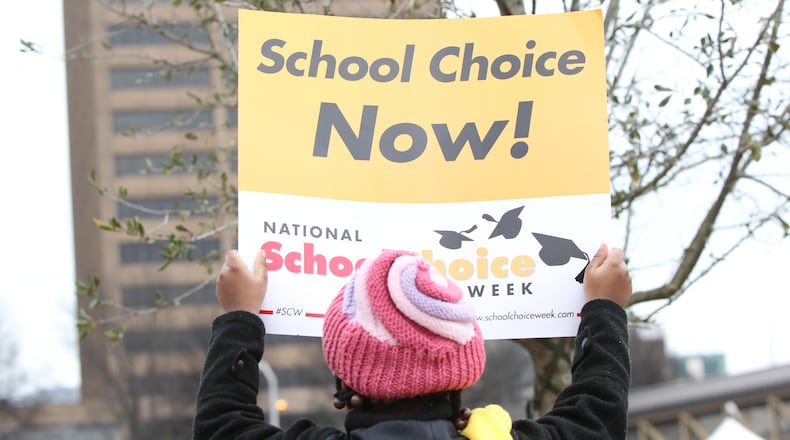A Florida-based advocacy group that pushes Georgia and other states to help fund private schools so more children can attend them is breaking ranks with allies over a controversial proposed federal tax rule.
The proposal by the U.S. Treasury Department and Internal Revenue Service would limit or eliminate the federal tax break for donors in state programs that raise money for causes, such as helping parents pay private school tuition or supporting struggling rural hospitals.
"There are diverging opinions from the school choice community on how to react," says the new policy paper from the Foundation for Excellence in Education, which was founded by former Florida Gov. Jeb Bush.
The loss of a federal tax deduction for participating in these programs will likely cause a decline in giving and a loss of scholarship dollars, says the group, which also calls itself ExcelinEd. But the intent of the tax proposal is to ensure that charitable contributions don’t result in a net gain for the donor, so it’s hard to argue the rule is “overtly unfair,” the group reasons.
The rule targets tax credit contributions. In Georgia, taxpayers who contribute to the private school fund, for instance, get all their money back in a tax credit from the state. And, due to a change in federal tax law last year, they can even come out ahead. That’s because they can take a federal deduction for the amount of their contribution.
The new proposal would eliminate that opportunity.
The American Federation for Children, which advocates for vouchers and other “school choice” initiatives, opposes the proposal, saying it will “harm” tax credit scholarship programs. Another group, EdChoice, says the rule, if enacted, “will hurt children.”
Adam Peshek, managing director for opportunity policy at ExcelinEd, says it's possible that scholarship contributions will decline if the rule takes effect. But, he said, it won't affect Florida, where the program is structured so that donors don't get a federal tax break. The state has about a third of all tax credit scholarship students in the nation, and he's basically arguing that other states should follow Florida's lead to establish stable programs.
“There are plenty of donors out there who are interested in giving to these programs because they believe in the mission,” he said, rather than because they’re seeking a tax break and a financial gain. “Ideally, you want donors who believe in the mission.”
Though ExcelinEd supports the proposed rule, which it calls “sound tax policy” to close an “unintended loophole,” it also is advocating for delayed implementation, a “short” transition period that gives tax credit programs time to adapt.
About the Author
Keep Reading
The Latest
Featured




